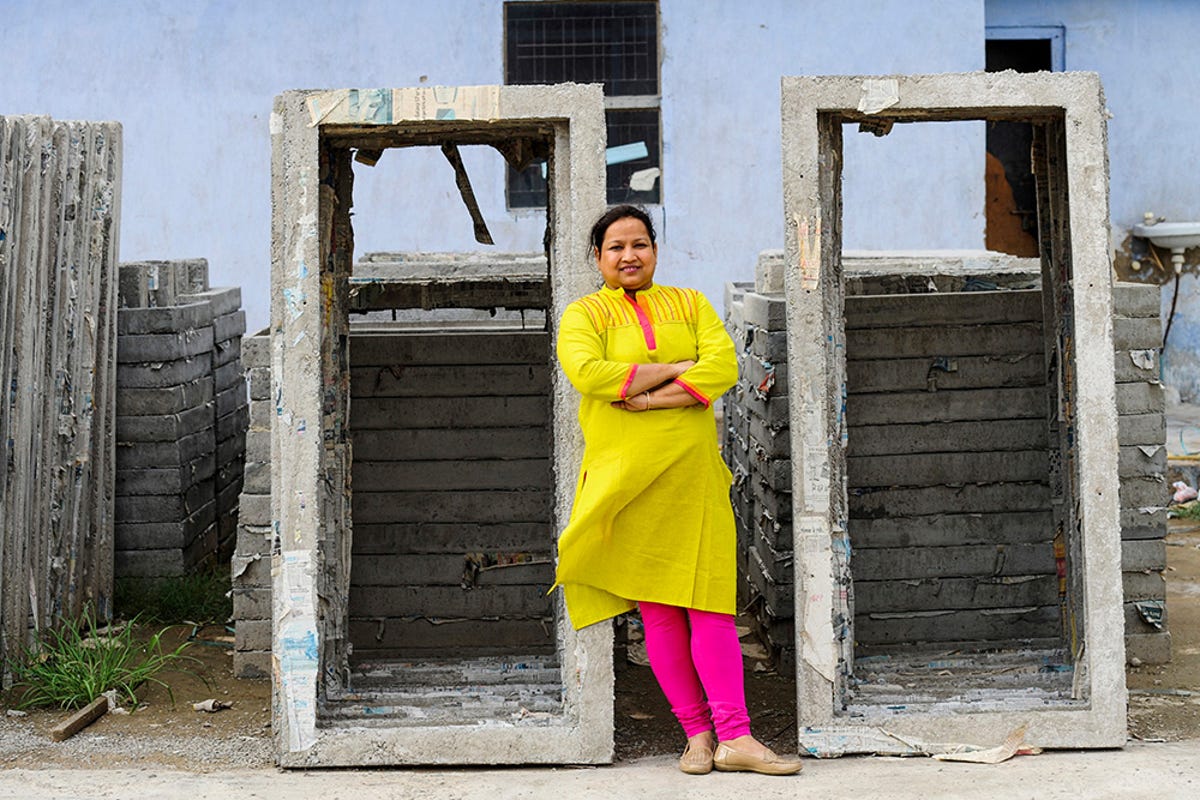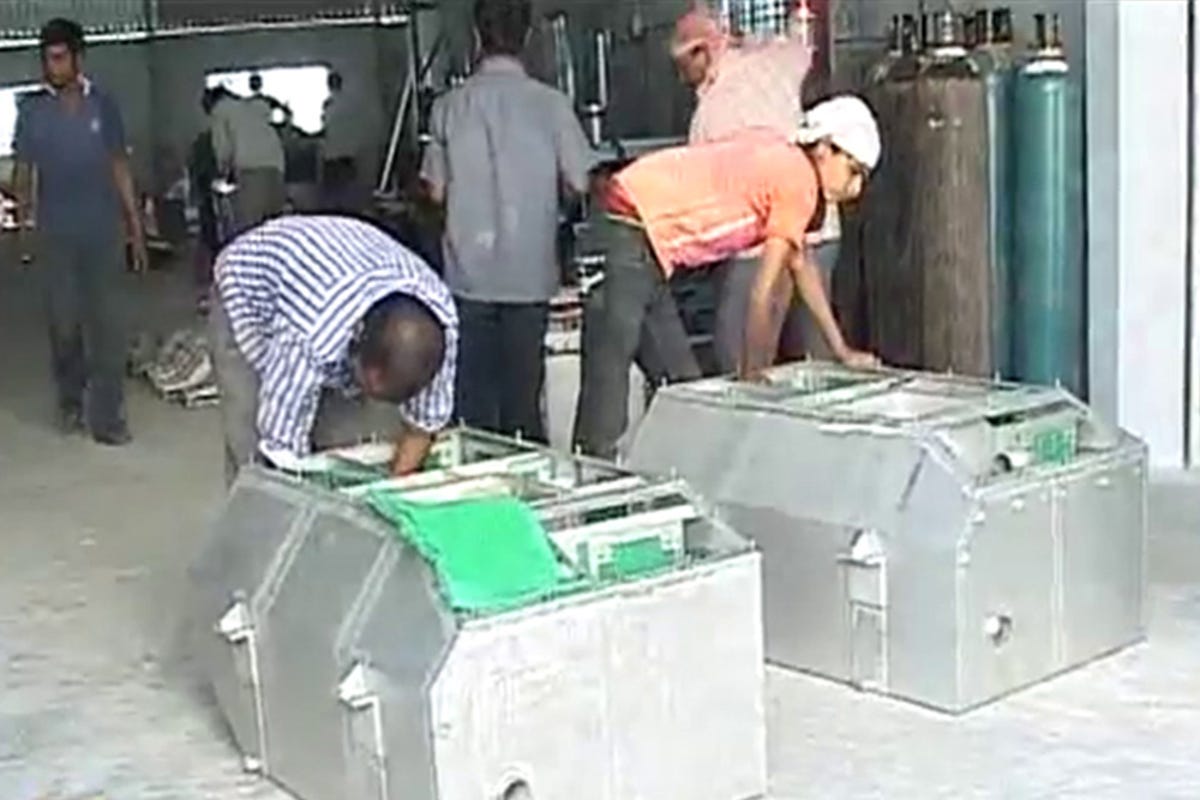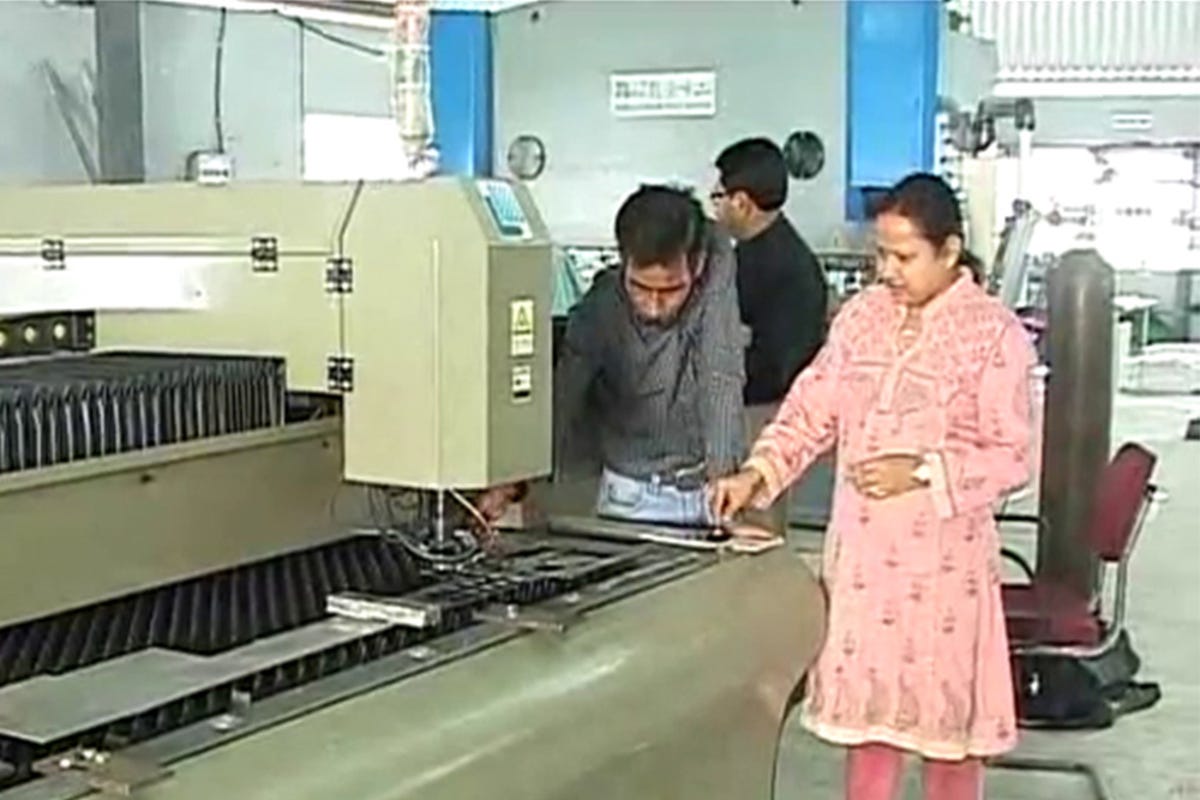Fellow Portrait
Namita Banka
Banka Bioloo
_(2).jpg?&quality=80&auto=webp&width=1000)
Banka Bioloo provides sustainable water and sanitation solutions across India, including biotoilets, biodigesters and sewage treatment plants.
South Asia and Central Asia
INDIA
FELLOW
2013 Fellow | 2025 Impact Awardee
Updated March 2013
Namita Banka’s path is not an obvious one. She started her first business in 1999, working as a diamond jewellery designer for 10 years in her home city of Surat. After her husband transferred to Hyderabad in 2008, Namita made a clean sweep. She enrolled in a course on social entrepreneurship and tried her hand at selling ink cartridges and green office supplies, tendering to Indian Railways, amongst others. Through her contacts there, she learned about one of their big problems: sanitation.
‘An estimated 100 million households do not have access to toilets and 60% of people are forced to defecate in the open, posing health hazards, environmental concerns and leading to water contamination.’ With an average 18 million people travelling by train every day, Indian Railways is ‘our lifeline’, says Namita, but its toilets were ‘in a pitiful state.’
.jpg?&quality=80&auto=webp&width=1200)
Ticket to ride
She took a job as a licensing agent for two toilet manufacturers supplying the railways and developed her knowledge of the market. A shrewd businesswoman, she built up a reputation and bagged herself a US$100,000 annual toilet maintenance contract on certain East Coast Railways lines. It was her ticket to an even more promising business, which she incorporated in 2012.
Banka Bioloo uses bio-digester technology patented and developed by the Defence Research and Development Organization (DRDO), a government agency, to dispose of human waste in a low-cost, and low-maintenance manner. ‘We use a set of bacteria that “eat away” human waste, leaving biogas that can be made into for fuel and effluent water that can be reused for gardening.’

From diamonds to…
The bacteria are cultivated in cow dung, which is placed inside ‘bio tanks’ at Banka Bioloo’s manufacturing plant in central India. The tanks can then be fitted to new toilets or retrofitted to existing facilities, including septic tanks. ‘No replenishment of bacteria is required and very little sludge is created, which makes these toilets virtually maintenance free.’ Namita is proud to be the only woman among the 20 or so businesses with whom DRDO is sharing its technology. ‘I have taken a lot of initiative to popularise this technology. It’s a huge opportunity for India and for us as a business.’
Since 2012, Indian Railways has started to transform all on-board toilets – a controlled discharge model where waste is deposited on the track, leading to health hazards and corrosion – into bio-toilets. Banka Bioloo has already supplied 55 bio-tanks to the Integral Coach Factory, a train carriage manufacturer, which fits them under its carriages. Minimum capacity for the tank to function is 450 litres.
In addition to its work with railways, Banka Bioloo is installing bio-toilets and 750-litre bio-tanks in public schools and individual households in rural areas of Andhra Pradesh, funded by an NGO. Namita advocates a general shift in thinking about human waste disposal. ‘The government is spending millions of rupees on building public toilets that are not maintained because nobody wants to clean up other people’s waste.’ After the trains, Namita’s goal is to ‘bring a toilet to every household in India.’
.jpg?&quality=80&auto=webp&width=1200)
.jpg?&quality=80&auto=webp&width=1200)
.jpg?&quality=80&auto=webp&width=1200)




.jpg?&quality=80&auto=webp&width=1200)
.jpg?&quality=80&auto=webp&width=1200)